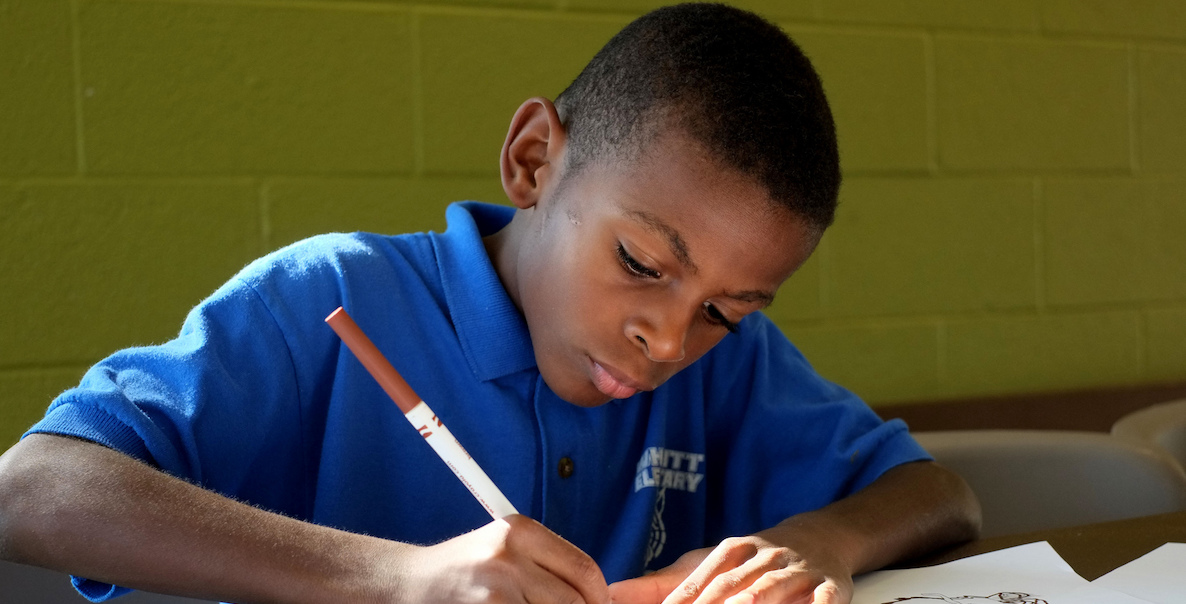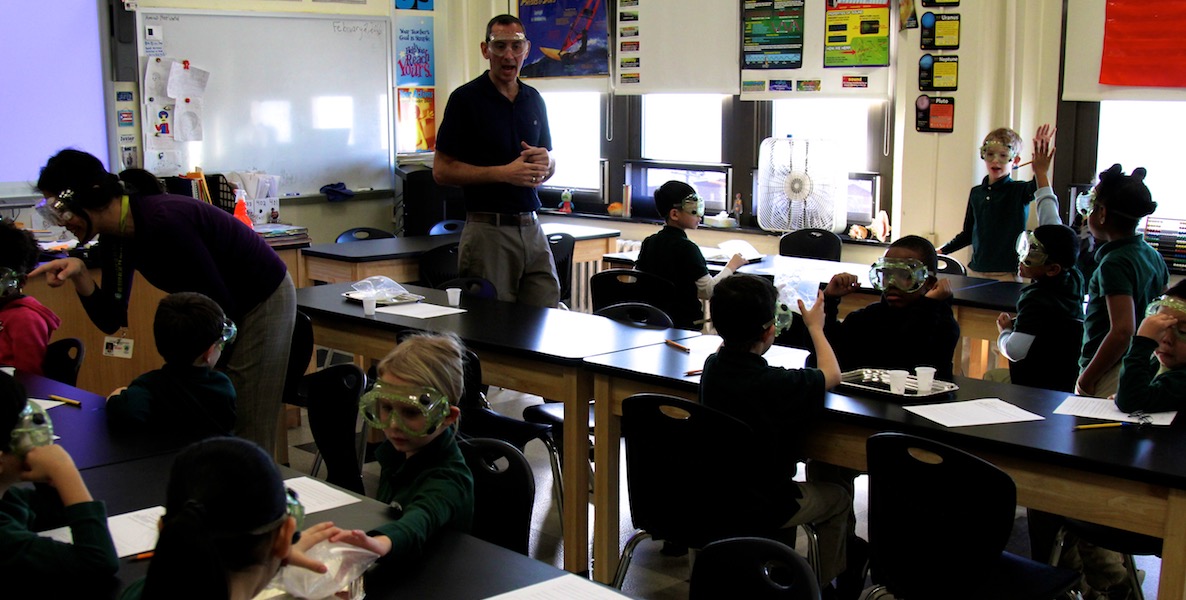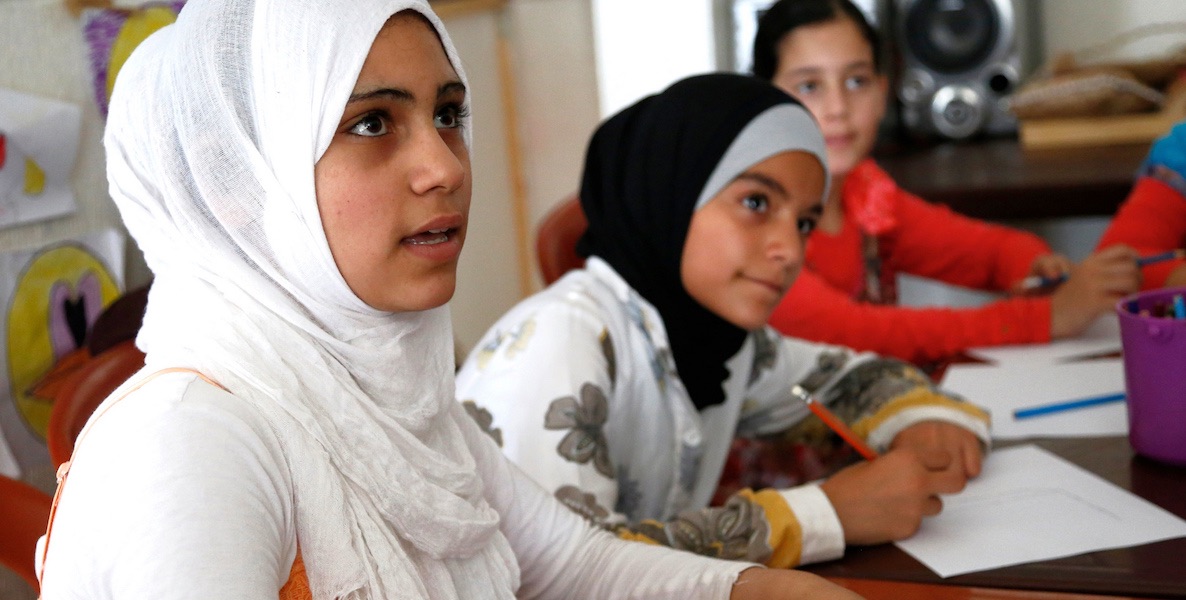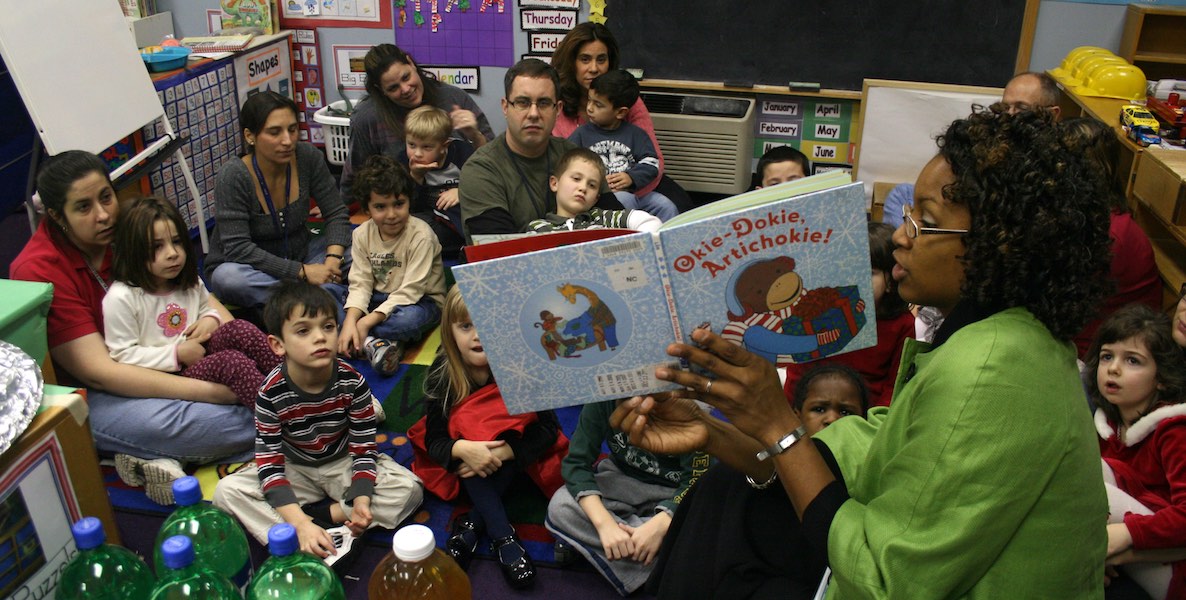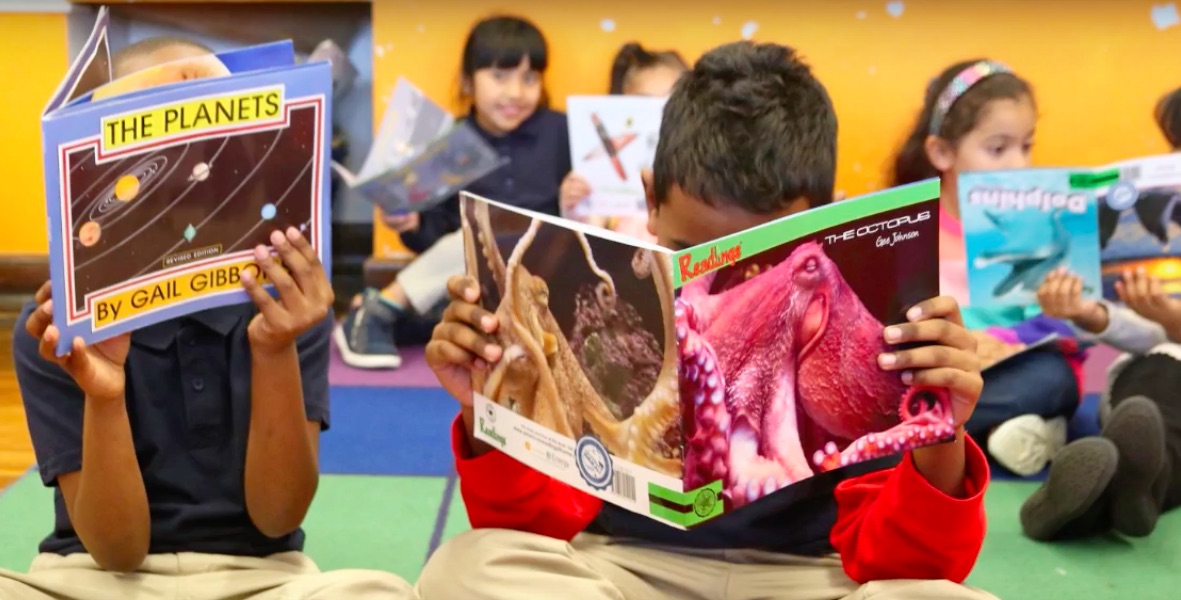Two years ago, when the School District’s nonprofit arm was rebranded and revived, it launched with a goal that seemed both ambitious and critical: To fund classroom libraries in every single kindergarten to third grade classroom in the city, and to train every K-3 teacher how to teach reading, by June 2018. It was to be a critical piece of the city’s Read by Fourth efforts, to ensure all students are reading at grade level by the end of third grade, when low literacy becomes a predictor of dropping out of school later.
Instead, the Fund for the School District of Philadelphia is set to meet its goal by this fall—almost a full year ahead of schedule. At the end of the month, the final cohort of 800 teachers from 57 schools will undergo training on how to teach reading to children with varying levels of exposure to books and language. “Most colleges of education do not train teachers to teach reading, which is so bizarre,” says the Fund’s Executive Director Donna Frisby-Greenwood. And in September, the Fund’s Right Books Campaign will supply those teachers’ classrooms with 500 to 600 instructional reading books organized by level.
That means all 1,900 K-3 classes in traditional public schools—serving 48,000 students—will have the tools to make strides in literacy by the time they open their doors next school year.
It’s a rare success story in a landscape more littered with problems than solutions, and it happened because of something also all too rare in this city: A joint effort of public, private and philanthropic entities. The Fund is close to raising $3.5 million for the libraries, which is being matched by the William Penn and Lenfest foundations. A couple of large donations have included $750,000 from the DNC host committee. The rest is from a combination of organizations, corporations, small foundations and individuals, some giving as little as $5 a month. The District itself has put about $22 million towards its literacy goal.
At the end of the month, the final cohort of 800 teachers from 57 schools will undergo training on how to teach reading to children with varying levels of exposure to books and language. And by September, the Right Books Campaign will supply those teachers’ classrooms with 500 to 600 instructional reading books organized by level. That means all 1,900 K-3 classes—serving 48,000 students—will have the tools to make strides in literacy.
Mayor Jim Kenney provided the initial momentum when he started the fundraising efforts literally on day one: His inauguration in January, 2016—two months after the campaign launched—was a fundraiser for Right Books that brought in $500,000. “That amount of attention allowed people to get to to us more quickly,” Frisby-Greenwood says. “Companies that wanted to support the Mayor suddenly were calling us. That was our first big push.”
The Fund for the School District was first started in 2003 by then-Superintendent Paul Vallas—who hid it behind the name Philadelphia Children First Fund—as a nonprofit intermediary between the District and those who wanted to make donations to it. Under Superintendent William Hite, the Fund in 2015 changed names and leaders (to Frisby-Greenwood) and took on a much larger role. It now actively raises money, and helps the District recruit and retain partners from the community. In May, the Fund held an annual corporate partnership breakfast with more than 100 companies, who are now involved with or want to be involved with city schools in some way.
The Fund’s first priority since 2015 has been the Right Books Campaign. How daunting is the problem? Students in some classrooms in the city have up to 26 different reading levels. Meanwhile, only about 30 percent of students score proficient or advanced in reading by the end of third grade. That contributes to the 40 percent of students who will eventually drop out of high school. Classroom libraries with books that range from level A to Z are one approach districts across the country have used to confront this issue. (They are different from school libraries because they are deliberately instructional.) Frisby-Greenwood says pairing the library with teacher training is something Philly has added. In addition to the week-long summer program, every school is also provided with a literacy specialist for two years to coach teachers.
It will take three to five years to measure the effects of Right Books. But a shift in how the city approaches these efforts is already a step in the right direction. City and school officials (and even we at The Citizen) have long urged businesses to pitch in to help schools, because good schools help everyone—rich, poor, middle class Philadelphians, and the businesses that want and need to employ them. But businesses have often balked at giving the money to a district many see as financially inept. “I would love to help Philadelphia schools,” one local CEO recently told The Citizen. “But I don’t trust the district with my money.” Instead, the need for additional support has been unofficially filled by hardworking principals, or Friends of groups, who volunteer or seek out partnerships with local businesses, or through the national DonorsChoose website. What’s changed now is Frisby-Greenwood’s nonprofit, which by being transparent has made it safe for donors who shied away for fear of feeding the bureaucracy.
Mayor Jim Kenney started the fundraising efforts literally on day one: His inauguration in January, 2016—two months after the campaign launched—was a fundraiser for Right Books that brought in $500,000. “That amount of attention allowed people to get to to us more quickly,” Frisby-Greenwood says.
But the bureaucracy hasn’t been solely to blame. This is about the culture of the city, one that is too often about silos, rather than partnerships. In Chicago, Frisby-Greenwood says, the Fund’s equivalent was actually initiated not by the school district, but by the business community. In Cincinnati, companies like Proctor & Gamble—which is headquartered there—have donated millions to help fund community schools. The notion of jumping in to fix schools—not through new charters, or new government funding alone—has become ingrained in that city. “People have the attitude that, ‘So goes the schools, so goes the city,’” Julie Doppler, Cincinnati’s Community Learning Centers Coordinator, told The Citizen in 2015. “It has transcended school boards, council members, mayors.”
The Right Books campaign—the Fund’s first effort—has shown that this gap between businesses, philanthropies and schools can be bridged here in Philadelphia, too. And in the fall, the Fund will launch its second project, a searchable online tool that will articulate the particular needs for every public school in the city. The Support Our Schools project will allow users to search school progress scores and the status of its partnerships by neighborhood—a way to see which schools are most in need of outside help; for each school, it will also list which companies have donated funds or volunteers, what arts groups have after school programs there, who has Friends of groups, and what the principal has identified as its funding priorities. Users can then donate directly through the website, or contact the Fund for help connecting with the school.
“From what we have heard from donors and potential donors, they want to give to schools directly, but they don’t know how,” says Frisby-Greenwood. “Most schools don’t have a person who can manage a donor’s call because principals and teachers are working all day. This lets us facilitate that process.”
Until recently, the working name for this tool was “Equity Map,” though Frisby-Greenwood says the Fund may drop that moniker before the tool goes live in September. But the name speaks to an issue that hovers over the city: How do we create schools that are equally as good as in the suburbs—or even equal to one another? That is the purported goal of the District, with its vow to create “good seats” in every neighborhood. But it’s clear by now that won’t happen without help beyond what the financially-strapped District can provide. It takes everyone to pitch in, whether it’s $5 a month to the Fund or a $20,000 donation to a North Philly school to purchase laptops. It’s hard to not be excited by the idea of every calculable need for every public school being filled through the simple act of asking in the right way, with the right tools. And it’s not a huge leap from there to thinking of all the other ways we could harness the wealth and desire of Philadelphians to be a part of fixing what ails the schools.
Then those schools can focus on the really important thing that matters: Teaching kids.
Header photo: Fund of the School District of Philadelphia


